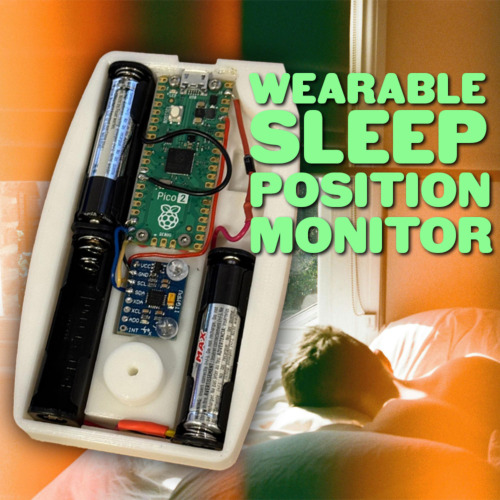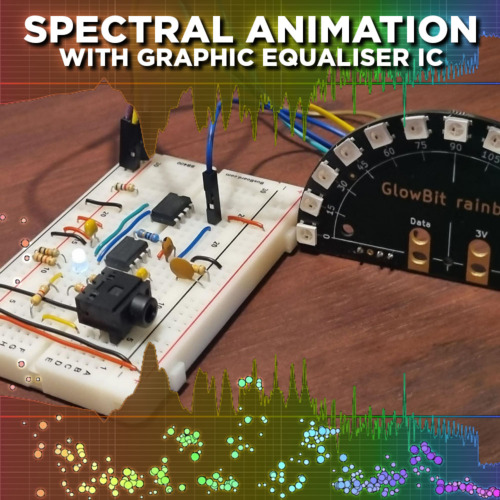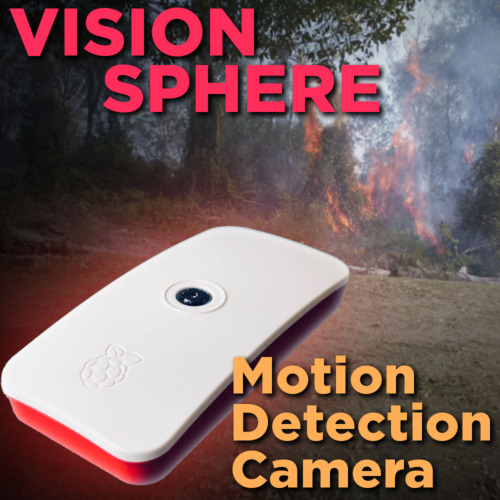P-Star 45K50 Mini SV
Available with a lead time
Expect dispatch between Jul 21 and Jul 24
Quantity Discounts:
- 10+ $39.62 (exc GST)
- 25+ $38.38 (exc GST)
 |
P-Star 45K50 Mini SV dimensions, with U.S. quarter for size reference. |
|---|
The Pololu P-Star 45K50 Mini SV is a general-purpose programmable module based on Microchip’s PIC18F45K50 microcontroller, which has 32 KB of flash program memory, 2 KB of RAM, and built-in USB functionality. On-board features of the P-Star (abbreviated P*) include a 16 MHz crystal, a USB Micro-B connector, and three user-controllable indicator LEDs. A switching step-down voltage regulator and power selection circuit allow the board to be powered from either USB or an external 5 V to 36 V source, while a current limit on the USB VBUS supply and reverse protection on VIN help protect it from accidental damage. The board ships with a USB bootloader that makes it easy to program the PIC microcontroller without using an external programmer.
Pololu's comprehensive user’s guide provides the basics you need to get started with the P-Star as well as detailed technical information.
This product requires a USB A to Micro-B cable (not included) to connect to a computer.
 |
P-Star 45K50 Mini SV, top view. |
|---|
Features
- Dimensions: 2" × 0.7" (2.05" × 0.7" including USB Micro-B connector)
- Programmable Microchip PIC18F45K50 microcontroller
- 32 KB flash (8 KB used by bootloader, leaving 24 KB available for user program by default)
- 2 KB SRAM
- 256 bytes of EEPROM
- Native full-speed USB (12 Mbps)
- Internally clocked at 48 MHz, resulting in execution speeds up to 12 million instructions per second (MIPS)
- Precision 16 MHz crystal
- 30 I/O lines in a small package
- 28 user I/O pins on the two long sides of the board
- 2 additional I/O pins available in other locations
- 25 pins can be configured as analog inputs
- 2 PWM output signals (one of which can be sent to four different pins)
- 5-bit digital-to-analog converter (DAC) output
- Three user-controllable LEDs
- Reset button
- USB Micro-B connector
- Can be powered from USB or external source regulated to 5 V by onboard regulator
- Operating voltage: 5 V to 36 V
- 5 V logic voltage
- Auxiliary 3.3 V linear regulator
- Reverse-voltage protection on external power input
- Ships with a proprietary USB bootloader developed by Pololu for the P-Star
- Bootloader is usable from Windows, Linux, and Mac OS X with open source software
- No external programmer required
- Compatible with standard Microchip compilers, development tools, and programmers
- Comprehensive user’s guide
Pinout
 |
P-Star 45K50 Mini SV pinout diagram. |
|---|
This diagram identifies the I/O and power pins on the P-Star 45K50 Mini SV. The diagram is also available as a printable PDF (547k pdf). For more information about the PIC18F45K50 microcontroller and its peripherals, see Microchip’s PIC18F45K50 documentation.
Included hardware
Two 1×18-pin breakaway 0.1" male headers and one 1×7-pin breakaway 0.1" male header are included with the P-Star 45K50 Mini. These header pins can be soldered in to use the board with perfboards, breadboards, or 0.1" female connectors.
|
|
The P-Star family
The P-Star 45K50 Mini is part of Pololu's P-Star family. The table below lists the members of the family and shows the key differences between them.
 |
P-Star 25K50 Micro (top) and P-Star 45K50 Mini SV (bottom). |
|---|
 |  | |
| P-Star 25K50 Micro | P-Star 45K50 Mini SV | |
|---|---|---|
| Microcontroller: | PIC18F25K50 | PIC18F45K50 |
| User I/O lines: | 19 | 30 |
| Analog inputs: | 14 | 25 |
| Reset button: |  | |
| Operating voltage: | 5.5 V to 15 V | 5 V to 36 V |
| Regulator type: | linear | switching step-down |
| Regulated current:(1) | 100 mA | 500 mA |
| Auxiliary 3.3 V regulator: |  | |
| Dimensions: | 1" × 0.6" | 2.0" × 0.7" |
| Weight:(2) | 1.3 g | 3.5 g |
1 These values are rough approximations for comparison purposes. Available current depends on input voltage, current consumed by the board, ambient conditions, and regulator topology.
2 Without included optional headers.
People often buy this product together with:
 | P-Star 25K50 Micro |
Dimensions
| Size: | 0.7" × 2.05" × 0.17"1 |
|---|---|
| Weight: | 3.5 g2 |
General specifications
| Processor: | PIC18F45K50 |
|---|---|
| RAM size: | 2 Kbytes |
| Program memory size: | 32 Kbytes3 |
| Motor channels: | 0 |
| User I/O lines: | 304 |
| Minimum operating voltage: | 5 V5 |
| Maximum operating voltage: | 36 V |
| Logic voltage: | 5 V |
| Reverse voltage protection?: | Y6 |
| External programmer required?: | N |
Identifying markings
| PCB dev codes: | pc02c |
|---|
Notes:
- 1
- Without included optional headers. This measurement includes the USB Micro-B connector, which extends 0.05" past the edge of the PCB.
- 2
- Without included optional headers.
- 3
- 8 KB of the MCU's 32 KB of flash memory is used by the pre-installed USB bootloader. All 32 KB is available if you use an external programmer and erase the bootloader.
- 4
- All 30 can be used as digital I/O, 25 can be used as analog inputs, and one can be an analog output. 28 of the 30 are available along the sides for use in a breadboard.
- 5
- For light loads. The regulator's dropout voltage increases approximately linearly with the load, from a few millivolts at no load up to around 0.6 V at 500 mA.
- 6
- On BAT+.
Documentation and other information
-
Pololu P-Star User’s Guide (Printable PDF)
User’s manual for the Pololu P-Star programmable modules.
File downloads
-
Pinout diagram of the P-Star 45K50 Mini SV (547k pdf)
-
3D model of the P-Star 45K50 Mini SV (8MB step)
-
Pololu USB Bootloader Utility (p-load) for Windows (1MB msi)
-
Pololu USB Bootloader Utility (p-load) for Linux (x86) (478k xz)
-
Pololu USB Bootloader Utility (p-load) for Linux (Raspberry Pi) (374k xz)
-
Drill guide for the P-Star 45K50 Mini SV (69k dxf)
This DXF drawing shows the locations of all of the board’s holes.
Recommended links
-
Microchip’s product page for the PIC18F45K50, with links to its datasheet and other resources.
-
MPLAB X Integrated Development Environment (IDE)
MPLAB X is a free IDE from Microchip for programming their PIC microcontrollers. It runs on Windows, Max OS X, and Linux. MPLAB X comes with the a simulator and the MPASM assembler. It works well with the MPLAB XC Compilers and the PICkit 3.
-
The MPLAB XC Compilers from Microchip are a family of C compilers for PIC MCUs. The compilers are free to use, but paid versions are available that provide better optimizations.
-
A collection example code and libraries for the P-Star.
-
Microchip’s PICkit 3 programmer is a low-cost hardware debugger and programmer for PIC microcontrollers.
-
SDCC – Small Device C Compiler
SDCC is a free and open source compiler that supports many types of microcontrollers, including PIC MCUs that use the PIC18 architecture. The PIC18s are called PIC16 in the SDCC documentation and command-line interface because the instructions are 16 bits wide. As of August 2014, the SDCC manual states that the support for these PIC microcontrollers “is not yet mature and still lacks many features”.
-
A BASIC compiler that targets PIC microcontrollers.
-
M-Stack is an open source USB Stack from Signal 11 Software for Microchip PIC microcontrollers.
-
The RPicSim library provides an interface to the MPLAB X PIC simulator that allows you to write simulator-based automated tests of PIC firmware. RPicSim is written in the Ruby language and runs on JRuby.
-
This bootloader can run on the P-Star 25K50. It acts as a USB mass storage device and allows the P-Star to be programmed by copying a HEX file onto it.
Exact shipping can be calculated on the view cart page (no login required).
Products that weigh more than 0.5 KG may cost more than what's shown (for example, test equipment, machines, >500mL liquids, etc).
We deliver Australia-wide with these options (depends on the final destination - you can get a quote on the view cart page):
- $3+ for Stamped Mail (typically 10+ business days, not tracked, only available on selected small items)
- $7+ for Standard Post (typically 6+ business days, tracked)
- $11+ for Express Post (typically 2+ business days, tracked)
- Pickup - Free! Only available to customers who live in the Newcastle region (must order online and only pickup after we email to notify you the order is ready). Orders placed after 2PM may not be ready until the following business day.
Non-metro addresses in WA, NT, SA & TAS can take 2+ days in addition to the above information.
Some batteries (such as LiPo) can't be shipped by Air. During checkout, Express Post and International Methods will not be an option if you have that type of battery in your shopping cart.
International Orders - the following rates are for New Zealand and will vary for other countries:
- $12+ for Pack and Track (3+ days, tracked)
- $16+ for Express International (2-5 days, tracked)
If you order lots of gear, the postage amount will increase based on the weight of your order.
Our physical address (here's a PDF which includes other key business details):
40 Aruma Place
Cardiff
NSW, 2285
Australia
Take a look at our customer service page if you have other questions such as "do we do purchase orders" (yes!) or "are prices GST inclusive" (yes they are!). We're here to help - get in touch with us to talk shop.
Have a product question? We're here to help!
Guides
The Maker Revolution
Projects
The Snooze Logger - A Wearable Sleep Position Monitor
Spectral Animations with a DIY MSGEQ7 I2C Device
VisionSphere: Camera Motion Detection for Raspberry Pi
Makers love reviews as much as you do, please follow this link to review the products you have purchased.

















Product Comments